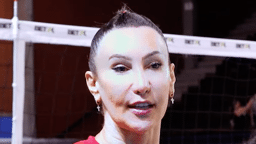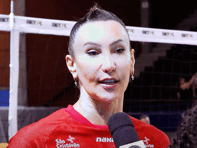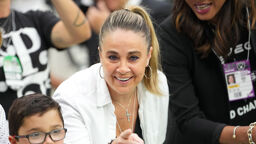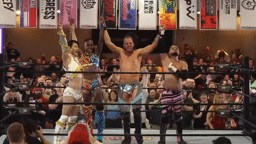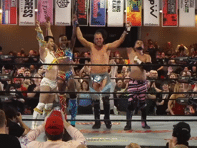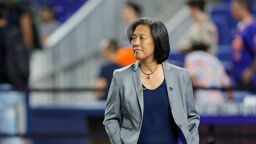 Part of Outsports’ series on our 100 most important moments in gay sports history.
Part of Outsports’ series on our 100 most important moments in gay sports history.
Soccer, 1998: Fashanu's death 13 years later still reverberates in the soccer world. His name is brought up an Exhibit A of why a soccer player can never come out. In his new book, German captain Philipp Lahm advised gay players to stay closeted, mentioning Fashanu's case. A group, the Justin Campaign, works in Britain to end homophobia in the sport.
In 1990 he publicly came out. The move essentially ended his career. Though he was still in peak condition, no club offered him a full-time contract. Some of his colleagues spoke out against him, and his brother publicly disowned him. The press used the story to run sensational headlines, and he was the target of abuse hurled from the crowds in stadiums. Eight years later, in the shadow of a sexual assault allegation, Justin Fashanu hung himself in a garage in Shoreditch, London.
Part of Outsports’ series on our 100 most important moments in gay sports history.
Soccer, 1998: Fashanu’s death 13 years later still reverberates in the soccer world. His name is brought up an Exhibit A of why a soccer player can never come out. In his new book, German captain Philipp Lahm advised gay players to stay closeted, mentioning Fashanu’s case. A group, the Justin Campaign, works in Britain to end homophobia in the sport.
In 1990 he publicly came out. The move essentially ended his career. Though he was still in peak condition, no club offered him a full-time contract. Some of his colleagues spoke out against him, and his brother publicly disowned him. The press used the story to run sensational headlines, and he was the target of abuse hurled from the crowds in stadiums. Eight years later, in the shadow of a sexual assault allegation, Justin Fashanu hung himself in a garage in Shoreditch, London.
In addition to homophobia, Fashanu also faced vicious racial taunts hurled from the stands. He was very talented and the first 1 million-pound soccer fullback, but the pressure of dealing with his sexual orientation overwhelmed him. Fashanu actually was not publicly out until the end of his career in 1990, but his orientation was pretty much an open secret. Writes gay rights activist Peter Tatchell, who knew Fashanu:
With no long-term gay partner, he was desperate for emotional reassurance. He turned to evangelical Christianity. Although that did give him a period of stability, it didn’t last.
Becoming a born-again Christian screwed up his life. With his Church damning homosexuality, he became very confused and unhappy about his sexual feelings. Desperate attempts at relationships with women failed. His longing for the love of men never went away. While publicly proclaiming Christian celibacy, he ended up resorting to furtive gay sex. That made it impossible for him to have a stable gay relationship. Caught between God and gayness, he suffered terrible emotional and psychological turmoil.
The combined homophobia of the football profession and Christian fundamentalism was an unbearable strain, sending Justin’s career into free-fall. Things were made worse by a knee injury that would not heal (the pressure he was under may well have compromised his immune system and contributed to the lingering infection). He became erratic and unpredictable, on the pitch and off it.
It’s a mistake to use Fashanu as a reason for gay soccer players to stay closeted. A lot has changed in 20 years and today an openly gay player would have a lot more support than was the case then. Fashanu was a trailblazer and it’s a shame his death is still used as an excuse to stay closeted.
For more information:









